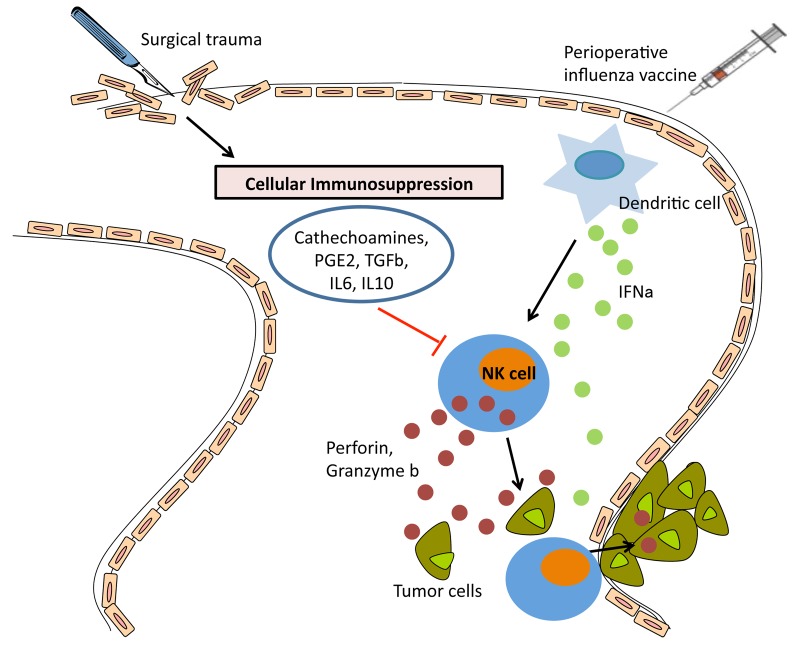Figure 1. Perioperative influenza vaccine activates NK cells and protects against postoperative metastases. Surgical trauma results in a variety of physiologic changes in the host, including profound immunosuppression. This state is characterized by the secretion of catecholamines, prostaglandins (PGs), transforming growth factor β (TGFβ), interleukin (IL)-6, and IL-10, resulting in natural killer (NK) cell dysfunction following surgery. Dysfunctional NK cells are unable to clear malignant cells and micrometastases that are disseminated or become established in the postoperative period. The preoperative administration of an influenza vaccine results in increased circulating levels of interferon α (IFNα), most likely secreted by dendritic cells, which activates cytotoxicity and cytokine secretion by NK cells. Thus, preoperative influenza vaccination prevents surgery-induced NK-cell dysfunction, hence stimulating NK cells to attack cancer cells and micrometastases in the postoperative period.

An official website of the United States government
Here's how you know
Official websites use .gov
A
.gov website belongs to an official
government organization in the United States.
Secure .gov websites use HTTPS
A lock (
) or https:// means you've safely
connected to the .gov website. Share sensitive
information only on official, secure websites.
